10 Things To Know About Uruguay
- Get link
- X
- Other Apps
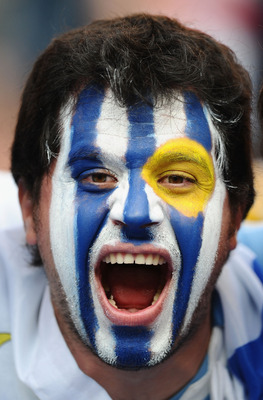
Uruguay has looked like one of the strongest teams at the 2010 FIFA World Cup, having topped Group A without conceding a goal.
A 2-1 win over South Korea in the second round has set up a quarterfinal game with Africa’s last remaining representative, Ghana.
Ahead of this crucial clash at Soccer City Stadium in Johannesburg, we bring you 10 Things to Know about Uruguay.
No. 10: World Cup Winners (1930, 1950)
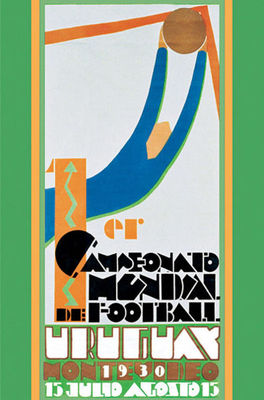
A Uruguayan historian once said: “Other countries have their history, Uruguay has its football.”
It is true that one of the few facts people know about Uruguay is that it was the host and winner of the inaugural World Cup.
The Uruguay soccer team of the early 20th century was the best in the world.
It had won Olympic gold in 1924 and 1928, before becoming world champions in 1930 by beating Argentina 4-2 in the final in Montevideo.
Having taken offense at the refusal by many European nations to travel all the way across the Atlantic Ocean for a soccer tournament, the world champions declined to defend its title at the 1934 World Cup.
Uruguay also did not enter the 1938 tournament, but finally returned for the 1950 World Cup in Brazil, which it won by beating the host nation in a dramatic final match.
No. 9: World Cup Quarterfinal Appearances
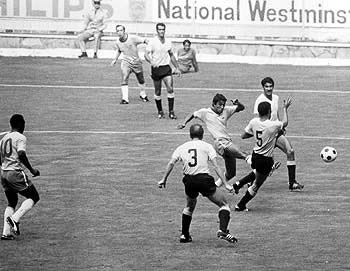
Aside from the two early tournament triumphs, Uruguay has reached the World Cup quarterfinals on three other occasions.
In 1954 and 1970, the team featured in the semifinals, eventually finishing fourth on both occasions.
The 1970 team lost 3-1 to eventual winners, Brazil.
Uruguay lost 3-0 to finalists West Germany in the quarterfinals of the 1966 World Cup.
In four finals appearances since 1970, Uruguay failed to get beyond the second round.
No. 8: Fastest Sending-off in World Cup History
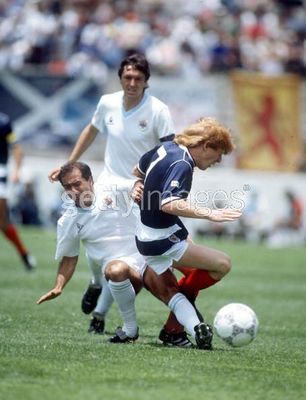
In the 1986 World Cup, a tough Uruguay side went into its final group stage match against Scotland knowing that a draw would earn qualification for the second round.
The team gave the Scots an early indication of how it planned to achieve that point, when José Batista became the fasting sending-off in World Cup history.
Batista’s red card came after 56 seconds following a brutal challenge on Scotland’s Gordon Strachan.
But the plan worked and a dirty match finished 0-0.
No. 7: Coach Oscar Tabarez’s Second World Cup
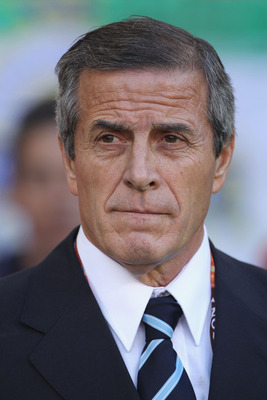
The 2010 World Cup is Uruguay coach Oscar Tabarez’s second finals appearance as head of the national team.
He was coach during 1990 when his side was eliminated in the second round by hosts Italy.
Tabarez has also coach Boca Juniors and had a very short spell as coach of Milan before being replaced by Arrigo Sacchi.
No. 6: PlayersLeaving Home
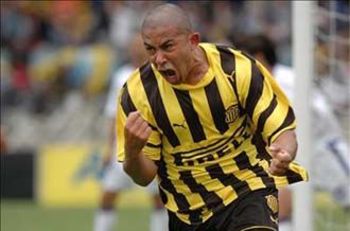
Only two players in Uruguay’s 23-man World Cup roster play football in the country’s domestic league.
They are Defensor Sporting goalkeeper Martin Silva and midfielder Egidio Arévalo, who plays for current Uruguayan champions Penarol.
15 players in Uruguay’s roster play their club football in Europe, while the remaining six are based in South America.
No. 5: Uruguay’s Top Scoring Strikers
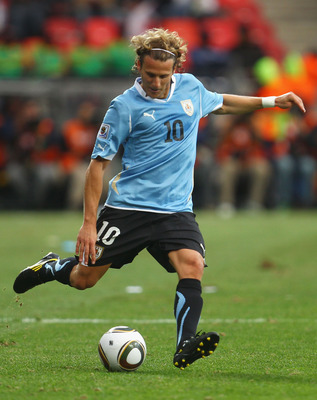
Uruguay’s main goal threats are strikers Luis Suarez and Diego Forlan.
The pair has scored three and two goals respectively at this World Cup, so far.
Both players were top scorers for their clubs in the season just finished.
Forlán scored the two goals that won the Europa League final for Atletico Madrid, finishing the season with 28 goals.
Despite being only 23 years old Suarez is already captain of his club Ajax and scored a phenomenal 49 times in 48 games in 2009-10.
No. 4: Pablo Forlán—Diego’s Dad
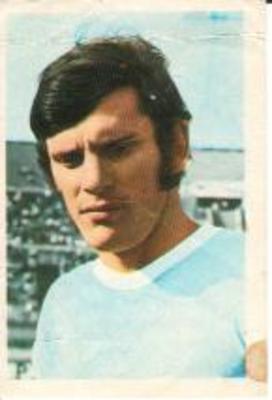
If Uruguay’s star striker Diego Forlán ever needed advice about playing in a World Cup, he could just ask his dad.
Though he did not play a match, Pablo Forlán was a member of the Uruguay roster at the 1966 World Cup.
Having missed out on the 1970 tournament in Mexico, Pablo started each of Uruguay’s three games at the 1974 World Cup.
However, the team failed to win a match and was eliminated in the first round.
No. 3: Four Number Ones
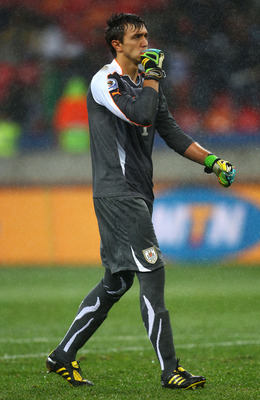
Uruguay played four different goalkeepers during the South American qualifiers.
Sebastian Viera was first choice until crucial errors against Brazil cost him the number one shirt and eventually his place in Tabarez’s final 23, while veterans Juan Castillo and Fabian Carini also featured.
However, Lazio goalkeeper Fernando Muslera secured his place in the starting 11 in the build-up to the World Cup and has played in each of Uruguay’s games in South Africa.
No. 2: Diego Lugano—Captain Fantastic
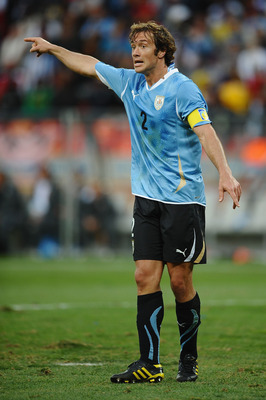
Uruguay’s captain Diego Lugano has been one of the best central defenders on display in South America.
His solid performances at the back and leadership skills helped his team qualify as Group A winners without conceding a goal.
Lugano was captain of Brazilian club Sao Paolo, when it won the Copa Libertadores and World Club Championship in 2005.
Now playing his club soccer with Fenerbahce of Turkey, Lugano scored a crucial goal during the qualifying play-off games with Costa Rica.
No. 1: Nicknames
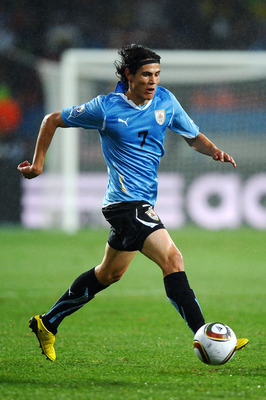
Uruguay’s players have some of the best nicknames at this World Cup.
Reserve goalkeeper Juan Castillo is known as the Wall, while swash-buckling attacker Edinson Cavani is called el Matador.
Every World Cup needs one player nicknamed El Loco and this time out it is Sebastian Abreu, the player who scored the crucial goal in the qualifying play-off against Costa Rica.
Even the coach Oscar Tabarez has a nickname. The experienced tactician must be pretty happy to be referred to as Maestro.
- Get link
- X
- Other Apps
Comments